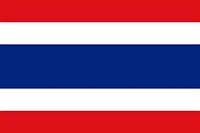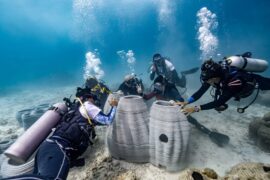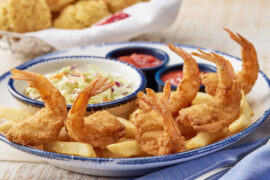The Thai government has begun the process of establishing a system of “catch certification” designed to trace fishing activity from start to finish, the Bangkok Post reported on February 23. Scheduled for complete implementation by August of this year, it is part of a plan to standardize Thailand’s fishing sector and address allegations of illegal, unreported and unregulated (IUU) fishing made by authorities in European Union, which is a substantial importer of Thai seafood products.
The goal is to insure harvest traceability of seafood from sea to processing plant to the consumer’s table, thus assuring legality of catch as well as quality.
“We have never had such a system, so the certificates will ensure all boats are under the same regulations and can be traced,” said Benjamaporn Wongnakornsawong, secretary for public affairs at the Command Center to Combat Illegal Fishing (CCCIF).
Fishing boat owners and operators seeking certification must report details of crew and cargo to the CCCIF every time they set out to sea, as well as when they return. The system applies not only Thai fishing vessels, but also foreign boats bringing in imported seafood.
“This will allow us to trace all boats to determine if they are involved in any human trafficking or labor abuse,” said Benjamaporn. “It will ensure we can avoid accusations of labor abuse.”
Jaras Usawachanchaiskul, a vice president at Charoen Pokphand Foods, said that CPF has already implemented strict rules for purchasing raw materials and is buying fish exclusively from companies certified by the International Fishmeal and Fish Oil Organization, which assures that the supply chain of custody has been properly maintained.
“Our company imports fish to produce fishmeal to make animal feed, so we’ll have to give our utmost cooperation to the government and comply with the system in order to avoid being blamed for abuse,” he commented.
It should be noted that most Thai seafood exports to the EU (estimated to be worth Bt 200 billion per annum) are farm-raised shrimp, processed fish and canned tuna, which have not been the subject of illegal fishing allegations.





